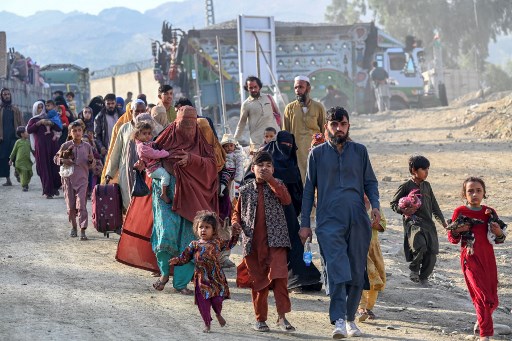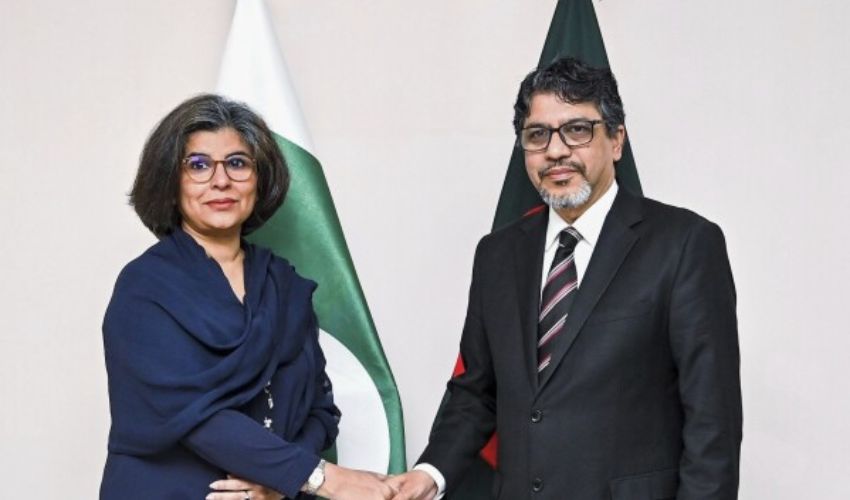Pakistan is burdened with a long list of troubles, a Taliban insurgency, poverty, corruption and power cuts are just a few. In these consequences where country is going through a lot, Inflation is becoming one of the most potentially explosive problems and it has emerged to be the main economic challenge for Pakistan as it harms growth and reduces the purchasing power of people.
According to the latest data from the World Bank, the annual inflation rate in Pakistan, based on the CPI, was 29.2% in November 2023, the highest in the world. This means that the average cost of a basket of goods and services that consumers buy was 29.2% higher in November 2023 than in November 2022. This was primarily fueled by a sharp rise in housing & utilities costs, which soared to 33% from 20.5% in October.
Being a developing country, inflation has been an endless challenge to Pakistan, impacting the cost of living for both individuals and families. The hike in prices of living essentials including food, petroleum products and electricity has made the lives of people miserable specifically the ones who are sole breadwinners for their families.
While speaking to Samaa a local businessman Ahmed said, “We are losing big profits in our businesses due to rising prices. I wish the government officials would help us but they are busy stuffing their pockets with the country’s money.” The escalating prices of food items, particularly fresh fruits, milk, and chicken is having a major impact on the livelihoods of all the sectors of society, but much of the burden of this falls on the poor community.
Notable point here is that this problem needs to be addressed as it decreases the welfare of poor people, particularly in the condition where no relief is being provided to them. The daily wage workers wait on the roadside in search of work for long hours, shockingly many wait for days hoping to pick up some labor, and when an employer comes along, there is fierce competition for the day’s wage between them. Around 95 million people in the society exist somewhere below the poverty line and millions are even struggling to get nutritious food. A daily wage earner Zaheer said, “We wait for hours and sometimes days to earn money so we can fulfill the basic desires of our children”.
Inflation is the talk of the town these days and surprisingly some other major aspects contribute to the price hikes in Pakistan, for instance natural disasters comprising floods, earthquakes, and locust attacks destroy the production of the agriculture sector. On the other hand our country has a large and mounting population, with high demands of goods and services and the supply of these products and services is often insufficient to meet the demands of society due to low productivity, inadequate infrastructure, and weak governance.
While speaking to DW the Head of Edhi Foundation, Faisal Edhi said, “The number of people needing aid has increased, the condition in which people are living especially the working class is not as it has been before. They used to spend 50% of their income on food but now they have to spend 70-80% of their income on food”.
Price rises has become a politically-charged issue and the shocking element is that the government is unwilling to tackle the problem. Unexpectedly, it is not just ordinary Pakistanis who are frustrated but Pakistan’s economic lifeline, The International Monetary Fund (IMF) is losing patience with what it sees as an inflexible political leadership. The country has been politically unstable for many years because no government till the date has completed the tenure of five years, furthermore, there is a lack of leadership in the nation due to which the matter of inflation is uncontrollable now.
“We can’t make money anymore because prices have been high for so long, said Farooq, sitting beside other idle merchants. It is making it harder to afford necessities and the scenario is something that needs attention”.
“I am the sole bread-earner of the family of 7, including my old parents, and I don’t know how long we can survive when prices are increasing daily,” said a rickshaw driver Saleem”. Pakistanis have been hit with an average inflation rate of 15 percent over the past three fiscal years and economists say irresponsible government policies are likely to keep it high. The chicken was once a common thing for everyone to buy but now it is also considered as a luxury item that not every individual can afford.
A huge sum of people in society are food insecure which means they are not getting good meals every day, they do not have shelters and sadly they do not have enough funds to meet the expenses of basic medical expenditures.
The current rate of inflation in the country is pushing many into poverty and Pakistan is going through the worst economic crisis seen in years. Analyzing these circumstances any unpredictable increase in the rates of basic requirements of life can make a layman change his perspectives and political views.
Stating actuality, Inflation is beneficial only for inflators, the political parties are fighting for their own interests and gains and in this chaos, and they have forgotten that the local community is going through the vilest circumstances, the innocent ones are dying of hunger. Despite this all, Pakistan is trapped in a cycle of borrowing that appears to have no end because we as a country are IMF addict and the fault lies within our roots.



























